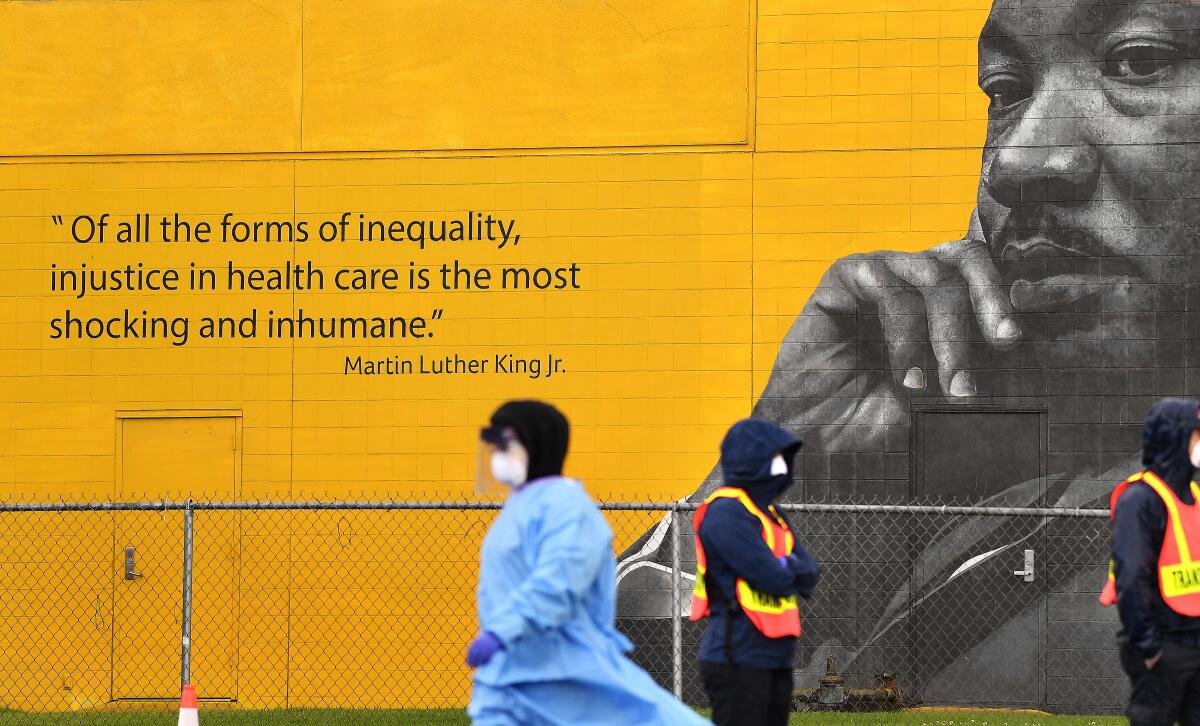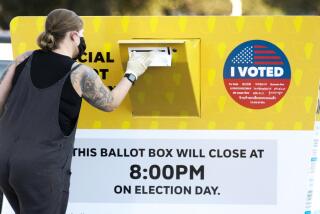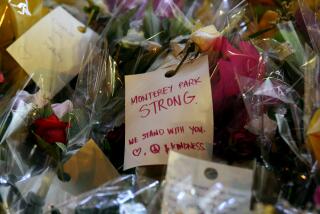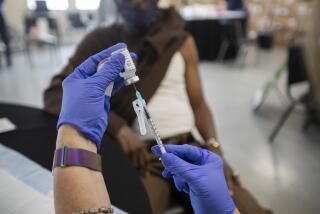Most California voters say coronavirus is increasing inequality, especially among blacks, poll finds

A strong majority of California voters believe that the COVID-19 pandemic has increased inequality in the United States, with many noting that the crisis has had the greatest impact on black people, according to a new poll.
The poll from the UC Berkeley Institute of Governmental Studies documents the hardship caused by the pandemic and the economic disruption surrounding it. The survey found that 70% of registered voters in the state somewhat agreed or strongly agreed that COVID-19 is increasing inequality, while less than 1% strongly disagreed and 8% disagreed.
Most of those surveyed also agreed that there were racial disparities in the virus’ effect on different ethnic communities. Some 59% either somewhat agreed or strongly agreed that the coronavirus “impacts black people more than other groups.”
But Californians’ perceptions of inequality varied along party lines, as well as along education levels and by region. Those with more education, and respondents living in the San Francisco Bay Area and Los Angeles, perceived inequality at much higher rates than their counterparts.
The poll suggests a deep ideological divide around how Californians view the effect of the virus. Republicans — especially staunch supporters of President Trump — were more likely to believe that the coronavirus does not have an outsize effect on particular groups, whereas Democrats and those who disapprove strongly of Trump were much more likely to see the pandemic as exacerbating inequality, and racial inequality in particular.
Democrats were more than three times as likely as Republicans — 51% compared with 15% — to strongly agree that the outbreak is increasing inequality. Democrats were also more than four times as likely as Republicans to strongly agree that the virus has a disproportionate effect on blacks.
Tianna Paschel, an associate professor of sociology and African American studies at UC Berkeley, said that the findings made sense given the large proportion of Democrats in the state. More surprising, she said, is that Latinos were the least likely to believe that blacks were disproportionately affected, with only 18% strongly agreeing, and 27% somewhat agreeing.
“Latino folks and black folks are competing for material and political resources. There’s job competition, housing and political representation,” said Paschel, who worked on the poll. “What I was surprised about was how large those numbers were. If you compare them, Latinos had higher numbers than Trump supporters.”
Latinos were also most likely to strongly disagree that blacks are harder hit by the pandemic — 9% of them felt that way, while the percentage of whites, blacks and Asians to strongly disagree with that statement was either 0% or near zero.
“With monolingual Spanish speaking households, they tend to look to Spanish-language media for their news source and the focus there is predominantly focused on the COVID-19 impact in their specific community,” said Victor Narro, project director for the UCLA Labor Center. “I have seen places like South Los Angeles, however, where in many mixed neighborhoods residents are able to come together and have a better understanding of the impact of the coronavirus pandemic across diverse communities.”
Extensive racial and economic disparities are emerging among victims of the coronavirus in Los Angeles County, and officials attribute the trend in part to systemic inequities.
Last week, Los Angeles County officials reported a rate of 89 deaths per 100,000 people among native Hawaiian and Pacific Islanders and 18 per 100,000 among black people. The rate was 15.5 for Latinos, 12 for Asians and nine for white people.
A Times data analysis found that blacks and Latinos younger than 50 are dying of the coronavirus in significantly greater numbers than other groups, including whites. Experts believe one reason is that many work in “essential” service jobs that require them to leave home, putting them at a higher risk of infection.
Camille Busette, director of the Race, Prosperity, and Inclusion Initiative at the Brookings Institution, said that the IGS findings could be a function of population levels. There are more Latinos in California than black people, especially in counties such as Los Angeles, she said, and that could influence perceptions of how the virus affects them.
“You’re most likely in your community, working with people in your community, and so everyone you see around you is Latino. We know that rates are high among Latinos,” she said. “The perception could be, ‘I don’t see blacks getting sick, so I don’t know much about that, but I do know the people in my community are falling.’”
Latino men were the most likely to strongly disagree that COVID-19 affects blacks more than other groups. At the same time, 67% of Latinos surveyed believed that the virus exacerbates inequality, and Latinos were also the most likely group to strongly agree with the statement “COVID-19 affects everyone equally.”
Researchers said that Latino respondents may see the unequal effect of the pandemic in economic rather than racial terms. Another explanation, they said, may be that Latinos do perceive racial disparities, but believe that they themselves are affected more than blacks; the Latino population in California is more than seven times the black population in the state.
The poll surveyed a random sample of 8,800 of the state’s registered voters from April 16 to 20. It was conducted online in English and Spanish.
More to Read
Start your day right
Sign up for Essential California for news, features and recommendations from the L.A. Times and beyond in your inbox six days a week.
You may occasionally receive promotional content from the Los Angeles Times.







